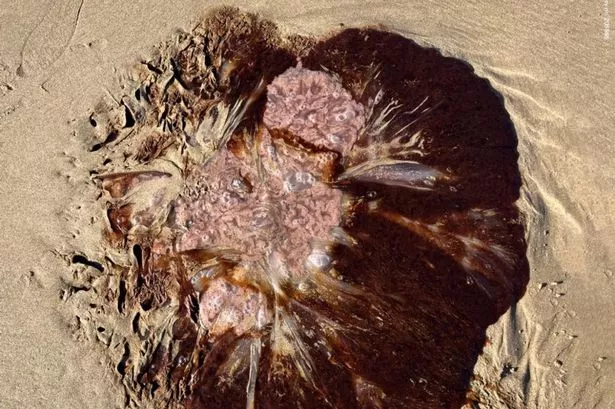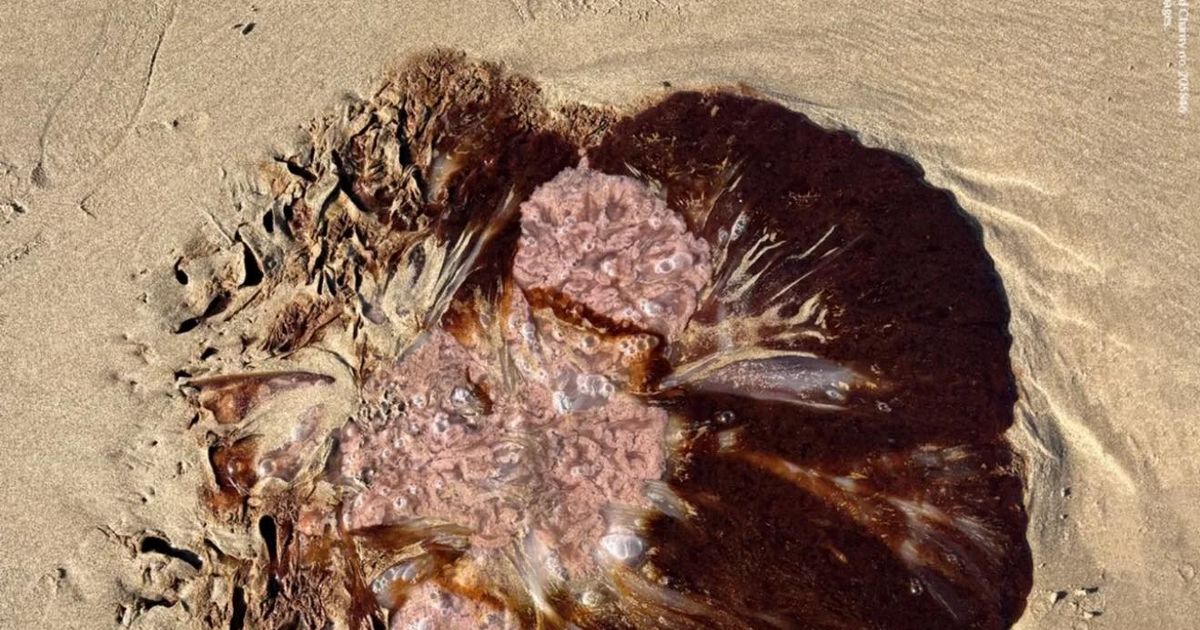Sightings have sparked warnings for beach-users to take care The warning comes after Lion’s Mane jellyfish washed up around the North Coast(Image: National Trust NI)
The warning comes after Lion’s Mane jellyfish washed up around the North Coast(Image: National Trust NI)
Visitors have been warned to look out for but not touch giant jellyfish which have been seen on a beach along the coast of Northern Ireland. The enormous creatures are thought to be Lion’s Mane which, while not poisonous, can sting.
A number of them have been seen along the North Coast and have sparked warnings for beach-users to take care if they see them as they can not only sting but could also potentially cause an allergic reaction.
And while these sightings are on a north east beach, they are regular visitors to the sands around the country during the warmer months. The National Trust has warned people to look, but definitely don’t touch when it comes to these giant creatures, which can give a nasty sting and are found off the coast around the UK and Ireland in the summer.
Sharing a Facebook warning from National Trust NI after they spotted a few Lion’s Mane jellyfish washing up around the North Coast, SDLP Foyle MP Colum Eastwood said: “If you’re thinking of taking a trip to the beach with the family this week just take some extra precautions – keep any pets away, try to wear wet shoes in the water and don’t touch them if you see them – they give a really nasty sting.”
Most stings from sea creatures in the UK are not serious and can be treated with first aid. Sometimes you may need to go to hospital.
Advice from the NHS on how to treat a jellyfish sting is:
- Rinse the affected area with seawater (not fresh water)
- Remove any spines from the skin using tweezers or the edge of a bank card
- Soak the area in very warm water (as hot as can be tolerated) for at least 30 minutes – use hot flannels or towels if you cannot soak it
- Take painkillers like paracetamol or ibuprofen
- Do not use vinegar
- Do not pee on the sting
- Do not apply ice or a cold pack
- Do not touch any spines with your bare hands
- Do not cover or close the wound
Members of the public should visit a minor injuries unit if they have severe pain which does not go away; they have been stung on the face or genitals; they believe they have been stung by a stingray; they’ve been stung by a sea creature in a tropical country or have a high temperature or a wound that does not get better after being stung by a sea creature while travelling outside the UK.
For all the latest news, visit the Belfast Live homepage here and sign up to our daily newsletter here.
